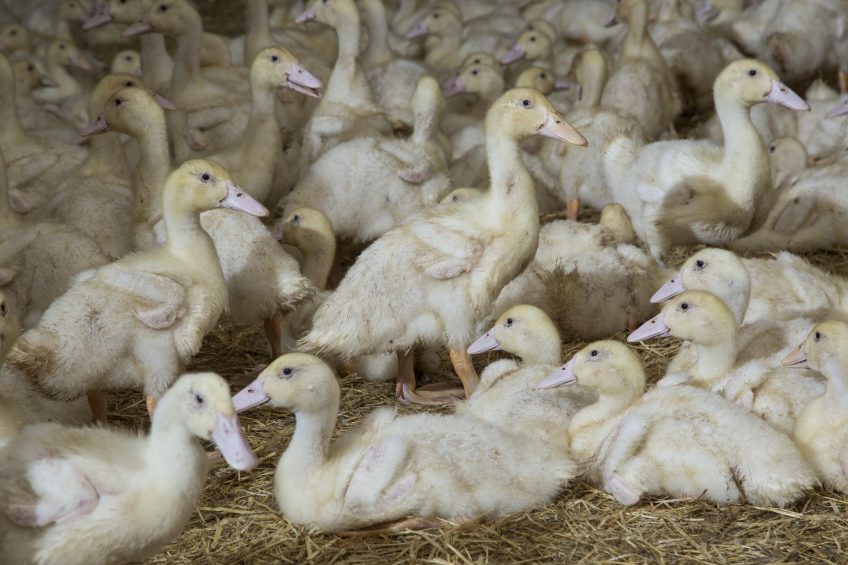Phytase usage in white Pekin ducks

A recent study showed that phytase was efficacious in hydrolysing phytate phosphorus for bone mineralisation and growth of ducks through the starter and grower periods.
Phosphorus in cereal grains and oilseeds is bound in phytin, the collective term for mixed salts of magnesium, calcium, and potassium of phytic acid. Phytin constitutes up to 3% of many of the oilseeds and cereals used in animal feeds.
If hydrolysed, phytin in feed can be a good source of phosphorus to the animal. Because intestinal phytase produced by non-ruminants is inadequate, in vivo hydrolysis of phytate is minimal, and therefore utilisation of phosphorus in cereal grains and oilseed meals is limited. Much of the phytate-bound phosphorus in the diet is passed out in animal waste.
Furthermore, phytic acid has strong chelating potential in the gut and complexes Ca and Zn, thus reducing their bioavailability. Microbial phytase added to diets increased phytate hydrolysis and availability of phosphorus in broiler chickens and ducks.
Ducks differ in phosphorus digestion from other avian species, and a paucity of performance data exists for ducks fed phosphorus marginal diets supplemented with phytase for an entire 42-day growth period. The growth performance and phosphorus utilisation responses of White Pekin ducks to phytase were investigated during the starter and grower phases. 576 one-day-old drakes with an average initial body weight of 55 g were grouped by body weight into eight blocks of six pens and assigned to 48 pens with 12 ducks per pen.
Starter diets contained 3,0 and 4,5 g/kg non-phytate phosphorus and grower diets 2,0 and 3,5 g/kg non-phytate phosphorus and were fed from day 1 to 15 and day 15 to 43 post hatch respectively. Dietary treatments were composed with phytase added at 500, 1000, 1500 and 15.000 units/kg diet. Ducks had free access to diets and water during the 42-day study. Feeding the low-phosphorus diet to ducks reduced weight gain and feed intake compared with the high-phosphorus diet in both starter and grower phases.












